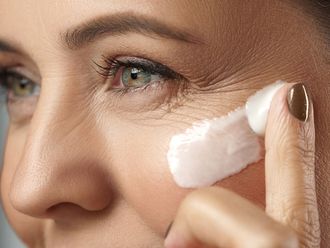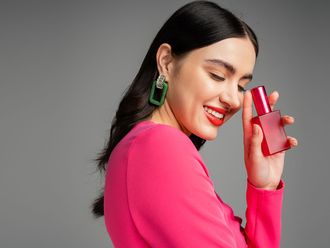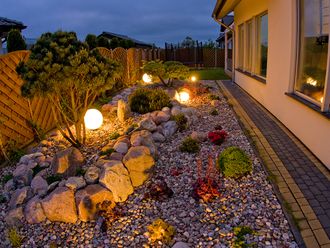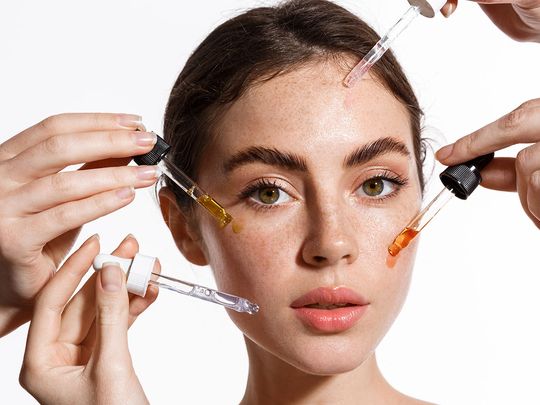
No matter what your skin concern is, retinol may be the answer.
This skincare ingredient successfully targets nearly every issue – from acne to dark spots to fine lines and enlarged pores. Once only available at dermatologists’ offices, today, retinol is incorporated into readily available creams, serums, oils and gels. But even though it has powerful and transformative effects, it’s often misunderstood.
It’s why we’re taking a deep-dive into skincare’s favourite active ingredient. We spoke with Dr Radmila Lukian, dermatologist at Lucia Clinic Dubai, to shed some light on retinol. Scroll down to read what she said, and learn how best to apply retinol-based products.
Based on our expert’s recommendations, and top reviewed picks on Amazon, we curated a list of the best retinol-based serums and creams that you can use to elevate your skincare routine. Become a Prime member to get free, fast delivery.
1. Best Overall: Roc Retinol Correxion Max Daily Hydration Cream
Tapping the best of powerhouse ingredients retinol and hyaluronic acid, French skincare company Roc’s Retinol Correxion cream both moisturises and produces smoother looking skin. This antioxidant-rich formula combines the anti-ageing impact of retinol with the hydrating effect of hyaluronic acid to create an anti-ageing formula that can be using by both men and women. This moisturising cream is gentle enough to be used every day, with reviewers sharing that they have noticed their skin appearing clearer, softer and smoother within a week’s time.
2. Best for Beginners: COSRX The Retinol 0.1 Cream
The Korean brand COSRX is well-known for its restorative snail mucin products, but its retinol cream is also definitely worth a look. First-time users found the cream to be light and gentle – it combines 0.5 per cent retinol with one per cent panthenol, to firm up the skin, while protecting and moisturising it. Vitamin E in this product helps fight signs of ageing, while adenosine activates cell regeneration and fades away fine lines.
3. Best for Anti-Ageing: Paula's Choice Clinical 1% Retinol Treatment Cream
Those looking to target advanced signs of ageing can find exactly what they’re looking for in this popular cream by Paula’s Choice. The formula targets fine lines and wrinkles, loss of firmness, enlarged pores, uneven tone, dullness and other skin concerns. Apart from retinol, the light, velvety cream uses licorice and oat extract to soothe redness and irritation. Dr Lukian said the Clinical 1% Retinol Treatment Cream “is known for its stable formulation and is suitable for those looking for a higher concentration [of retinol]”. Reviewers have reported visible improvement in a matter of four weeks.
4. Best for Dry Skin: Drunk Elephant A-Gloei Virgin Marula Oil with Retinol
If you love Drunk Elephant’s Virgin Marula Facial Oil, which went viral on TikTok last year, you’d be happy to learn the American brand has taken it to the next level, by incorporating the same omega-rich marula extract with a dose of retinol and skin barrier-strengthening ceramides. Reviewers have found the treatment to even out their skin tone, smooth out any uneven texture, reduce discolouration, and remove blemishes. However, some complain that it has a distinct smell of olive oil.
5. Best for Oily Skin: SkinMedica Retinol 0.5 Complex
Since retinols work by turning over cells on the skin’s surface, they can help to unclog pores – something people with oily or acne-prone skin often face. This formula by SkinMedica, helps clear up the skin with its lightweight formula, without adding extra layers or weight. Formulated with powerful anti-ageing and soothing ingredients like niacinamide, squalene, ceramide III and bisabolol, the serum is best used once or twice a week until you build up tolerance. Some reviewers who have applied this product on blemishes say they’ve seen a visible difference within hours.
6. Best High Strength Option: The Ordinary Retinol 1% in Squalane (2-Pack)
Affordable and great for regular use, The Ordinary’s water-free retinol solution is ideal for people who are looking for a higher concentration of retinol for their skincare regime. The retinol is supported by squalene, a moisturising agent that’s naturally found in our skin – it helps enhance surface-level hydration. This means you don’t have to worry about the dryness that’s usually associated with retinols. Dr Lukian recommends The Ordinary’s Retinol 0.5% as well, which she said provides “a straightforward option for those new to retinol”.
7. Best Alternative: Eau Thermale Avène RetrinAL 0.1 Intensive Cream
Instead of retinol, Avène’s RetrinAL 0.1 Intensive Cream is formulated with its sibling, retinaldehyde (or retinal), which is more potent but takes less time to work. This brightening cream has over 1,800 rave reviews on Amazon, and is touted as a great starter for people with sensitive or dry skin. The peptide formula helps the skin look plumper and firmer, and includes antioxidant protection, as well as Avène’s thermal spring water to soothe and calm the skin. Reviewers with wrinkles and fine lines also say they’ve noticed a visible reduction.
What is retinol and how does it impact the skin?
We spoke with Dr Radmila Lukian, dermatologist at Lucia Clinic Dubai, to shed some light on this popular active ingredient. She said: “Retinol is a derivative of vitamin A and is a type of retinoid, which is known for its potent anti-ageing properties.”
Vitamin A cannot be made by our bodies – we have to consume it through our diet, and by applying it topically via skincare. That’s where retinol comes in.
Dr Lukian explained: “When applied to the skin, retinol undergoes conversion into retinoic acid, which stimulates collagen production, promotes cell turnover, and encourages the creation of new blood vessels. These actions collectively contribute to the reduction of fine lines, wrinkles, and improvement of skin texture. Retinol is also effective in treating acne by preventing the formation of comedones and promoting skin renewal.”
Does retinol have side-effects?
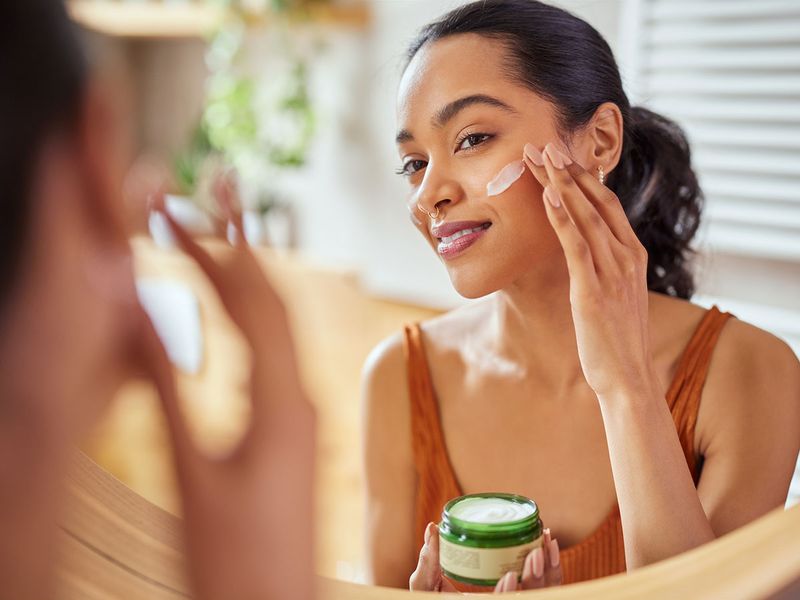
Despite studies confirming retinol’s role in improving skin conditions like hyperpigmentation, wrinkling from sun damage and other issues, it’s important for first-time users to apply retinol products with some caution.
Dr Lukian said: “Retinol has the potential to irritate the skin, causing redness, dryness, and flakiness, especially during the initial stages of use. To minimise irritation, it's crucial to introduce retinol gradually into your skincare routine. Begin with a lower concentration and use it less frequently, allowing the skin to adapt. Additionally, applying a moisturiser before or after retinol can help mitigate dryness. Sunscreen is non-negotiable when using retinol, as it can increase sensitivity to the sun.”
Our expert also advises using retinol at night, when first incorporating it into your skincare regimen. She added: “Avoid using retinol products in conjunction with products containing benzoyl peroxide or vitamin C to prevent potential interactions.”
How to make a retinol sandwich
The ‘moisture sandwich’ method, which Dr Lukian mentioned, is a clever hack for anyone struggling with irritated skin. The method involves applying moisturiser to sensitive areas of the face – such as around the eyes, smile lines, and chin – and then following it up with your retinol product. After 15 minutes, you can apply another layer of moisturiser to create your retinol sandwich. Once your skin adjusts to retinol over time, you can then skip the initial layer.
It’s also vital to pick products with a lower concentration of retinol, especially when you’re starting out. Dr Lukian shared some advice on what to look for: “The optimal concentration of retinol in a serum or cream can vary depending on an individual's skin sensitivity and needs. In my opinion, a concentration between 0.25 to 1 per cent is generally suitable for most people. It's essential to start with a lower concentration and gradually increase as the skin builds tolerance. The frequency of application should also begin with once or twice a week and then be adjusted based on how the skin responds.” Once you slowly build up tolerance, you can eventually use your retinol product every other night.
Patience is key when using active ingredients – you’ll start to notice skin improvements in around three to six months, depending on the product you’re using. Dr Lukian added: “It's essential to be patient and consistent with retinol use, understanding that results may take time, and overuse can lead to increased irritation. If uncertain, consulting with a dermatologist who can provide personalised guidance based on individual skin concerns and needs.”
Our recommendations are independently chosen by Gulf News editors. If you decide to shop through links on our website, we may earn an affiliate commission, as we are part of Amazon Services LLC Associates Program.




